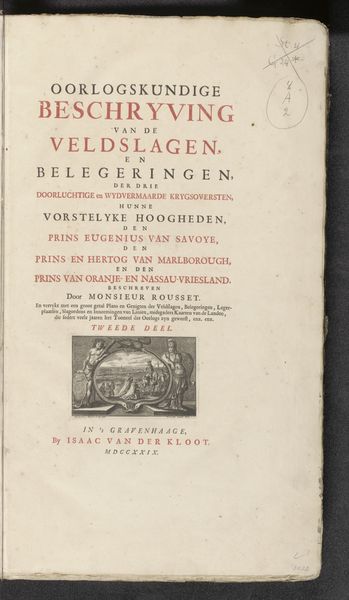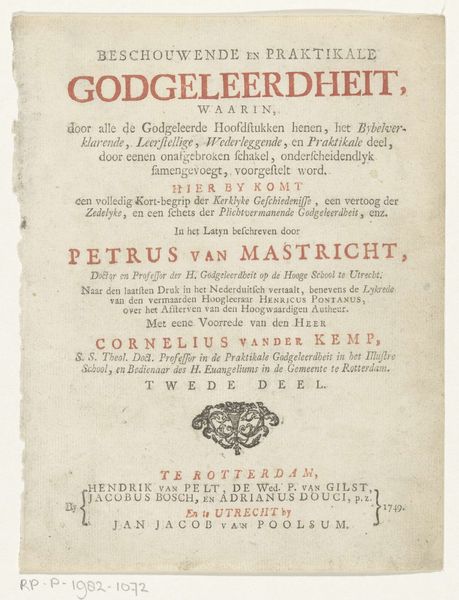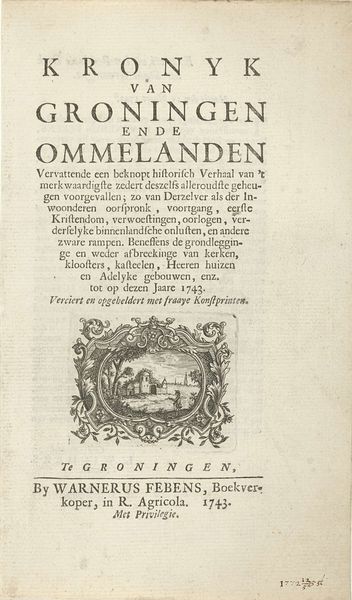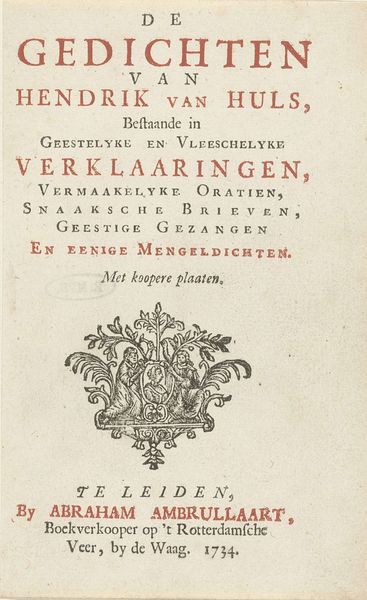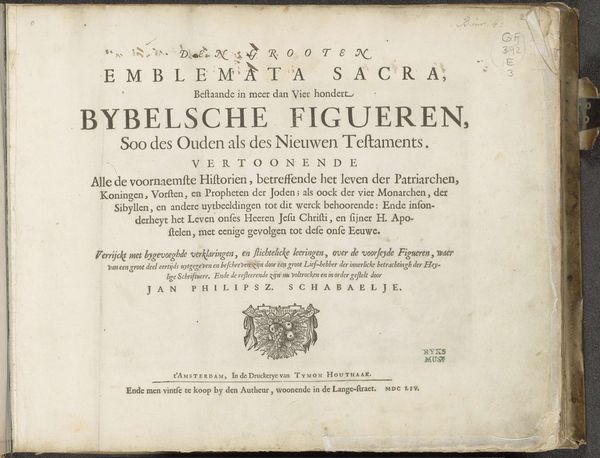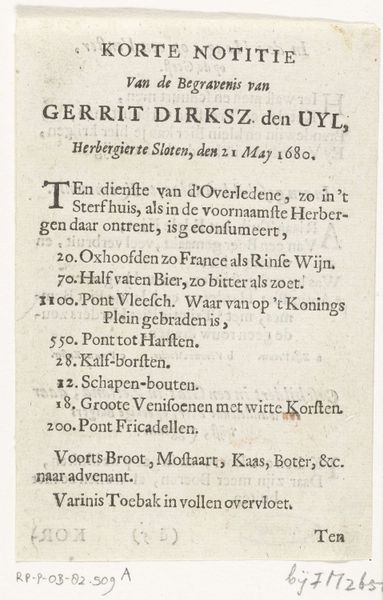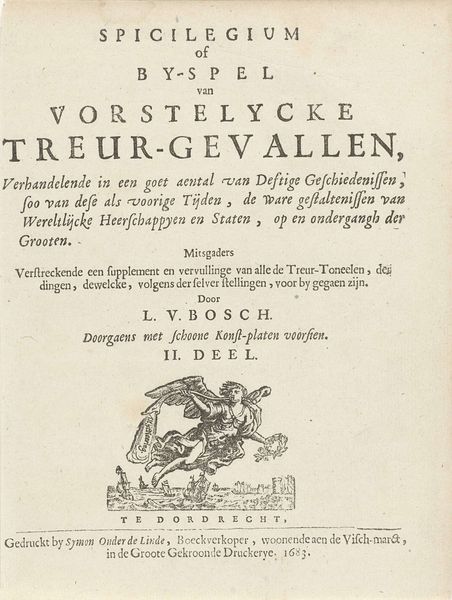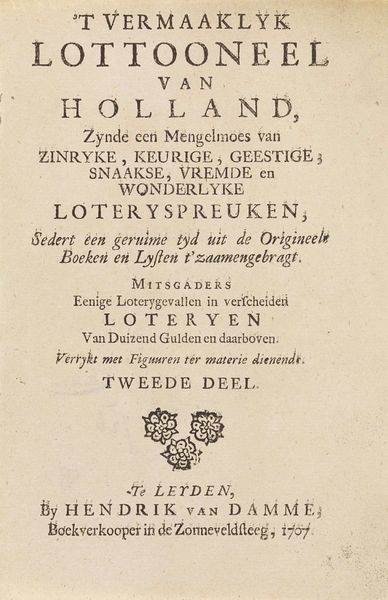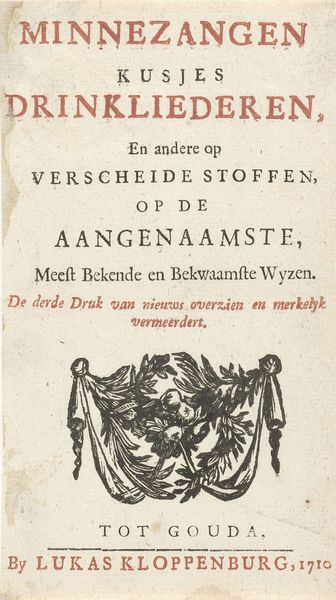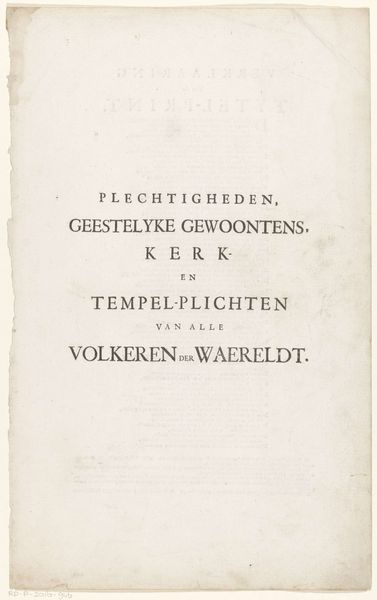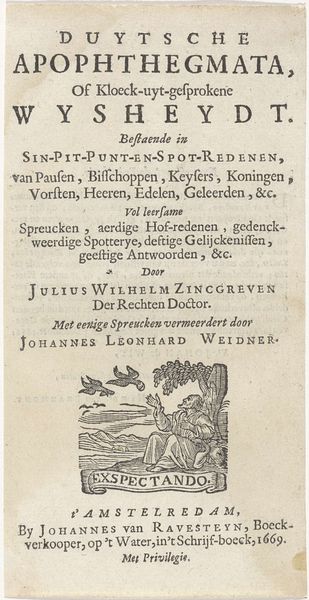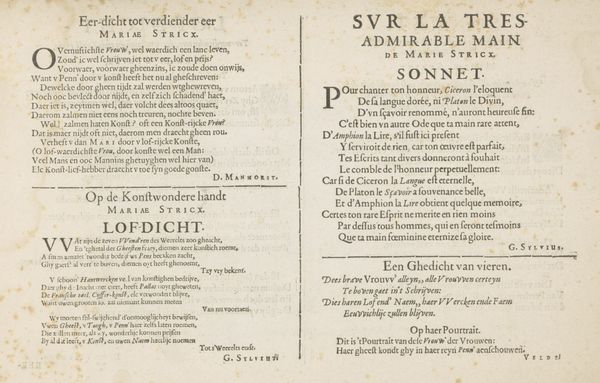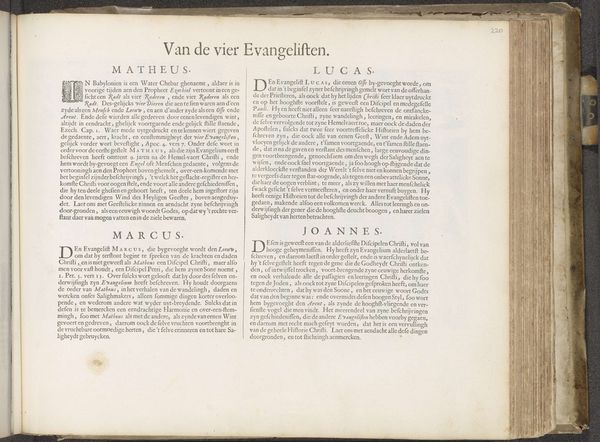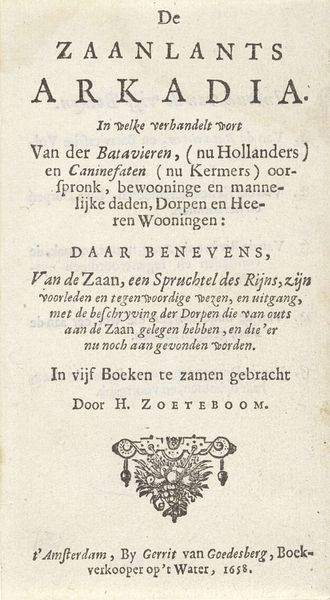
Titelpagina voor Simon de Vries, Seven Duyvelen regeerende en serveerende de Hedendaeghsche Dienstmaegden, Amsterdam, 1682 1682
0:00
0:00
timotheustenhoorn
Rijksmuseum
print, typography
#
dutch-golden-age
# print
#
typography
Dimensions: height 127 mm, width 75 mm
Copyright: Rijks Museum: Open Domain
This is the title page for Simon de Vries’s book, *Seven Devils Governing and Serving Modern Maids*, published in Amsterdam in 1682. Here, the word 'devil' doesn't only imply Christian demons. Rather, it serves as a symbol for the vices to which maids, or young women, are susceptible. The seven devils listed—pride, thievery, whoring, gossiping, obstinacy, laziness and deception—are presented as moral dangers threatening the virtue of young women. The use of such symbols—allegorical figures representing abstract concepts—can be traced to classical antiquity. We can see this with the figures of vices and virtues in medieval morality plays, for example. These personifications tap into a collective cultural memory, manifesting subconscious anxieties and moral lessons. The image of the 'devil' itself has undergone countless transformations, reflecting evolving societal fears and beliefs. This title page uses the symbol to caution against the dangers of temptation, thus engaging viewers on a deeply psychological level, evoking both fear and the desire for moral rectitude. The non-linear progression of this symbol and concept has resurfaced, evolved, and taken on new meanings in different historical contexts.
Comments
No comments
Be the first to comment and join the conversation on the ultimate creative platform.
